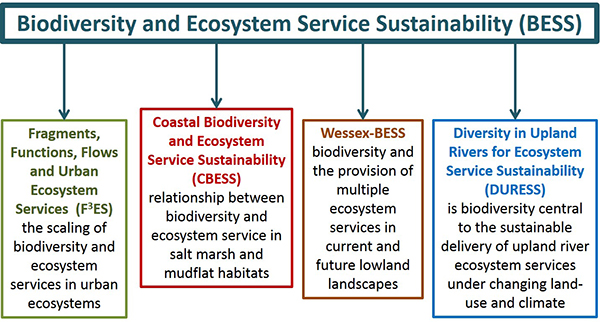CBESS is one of four research consortia managed by the Biodiversity and Ecosystem Service Sustainability (BESS) programme, a six-year (2011-2017), NERC research programme, supported by BBSRC, designed to answer fundamental questions about the functional role of biodiversity in key ecosystem processes and the delivery of ecosystem services at the landscape scale.
The health of the UK’s coastlines is inextricably linked to our success as an island nation, and resonates through our economy, our recreation, and our culture. One of the most sensitive environments to the pressures of climate change are coastal habitats. Salt marshes, mudflats, beaches and rocky shores will all be affected. Of these areas, the most sensitive are mudflats and salt marshes, both common features of our coastal environment and comprise just over half of the UK’s total estuarine area.
Not only do mudflats and salt marshes support a wide range of economically valuable animal and plant species, they also act as sites of carbon storage, nutrient recycling, and pollutant capture and destruction. We know quite a lot about individual small areas but coastal managers require evidence to understand how ecosystem service flows operate at much larger spatial scales, e.g. entire salt marshes or regions of intertidal flat and salt marshes. The CBESS project will help deliver this understanding.
Prof David Paterson, CBESS Consortium Leader provides an overview of the CBESS project.



1 thought on “Home”
Comments are closed.